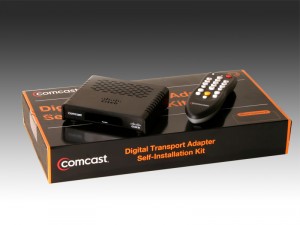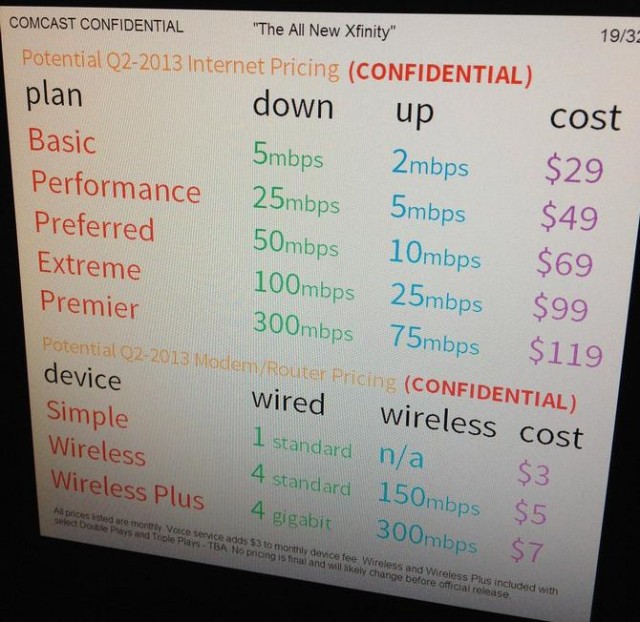
$1.99 each per month… every month.
Comcast customers in parts of Minnesota are receiving notification their cable lineup is about to switch to “all-digital,” requiring most to rent Comcast-supplied digital cable set-top boxes that will add at least $1.99 per box, per month to customers’ bills.
Residents in Eagan are so upset, a special meeting has been scheduled tonight by the Eagan City Council to discuss the burgeoning cable fees from the largest cable provider in the state.
“What we’ve decided to do is try to gather more information on behalf of our residents,” Eagan communications director Tom Garrison told the Eagan Patch. “I think people are certainly hearing about it. They’ve got questions, they’ve got mailings, and we hope to get them good and useful information they can act on.”
Comcast is in the process of reclaiming space on its cable systems by switching analog television channels to digital service, which will free up considerable bandwidth for other uses. But customers are inconvenienced if they do not already have Comcast set-top boxes.
Comcast has notified customers they can have a Digital Transport Adapter (DTA) sent to them for $1.99 per month, per adapter. The device makes digital signals available in analog so customers can keep watching. But the equipment no longer is provided for free. Customers will have to either install a DTA, a traditional set-top box, or a CableCARD on every television in the home after the conversion is complete.
Although the city will meet with interested residents, local government officials have very little say over how Comcast chooses to conduct business and cannot force the company to change its plans.


 Subscribe
Subscribe

 A handful of Georgia state legislators have introduced a bill to ban community-owned broadband anywhere Internet service is available at speeds of at least 1.5Mbps — so slow it does not even meet the FCC’s new definition of “broadband.”
A handful of Georgia state legislators have introduced a bill to ban community-owned broadband anywhere Internet service is available at speeds of at least 1.5Mbps — so slow it does not even meet the FCC’s new definition of “broadband.”
 Frontier Communications has admitted in a
Frontier Communications has admitted in a  Frontier claims it faces robust competition in Washington and should be entitled to deregulation.
Frontier claims it faces robust competition in Washington and should be entitled to deregulation.